BIENNALE / 21.04-4.06.2023
13th Biennale of Graphic Arts / ERROR
Exhibition opening
21.04.2023
Stary Browar – Galeria na Dziedzińcu
18.00
Galeria Miejska Arsenał
20.00
WINNERS of the 13th BIENNALE OF GRAPHIC ARTS / ERROR
GRAND PRIX of the 13th Biennale of Graphic Arts / Error
7 000 PLN
Aleksandra Kaim
Stany (Nie)Zjednoczone
First Award of the Rector of the Magdalena Abakanowicz University of the Arts Poznan
5 000 PLN
Borys Szadkowski
Fear of missing out
Second Prize of the Dean of WGiKW of the Magdalena Abakanowicz University of the Arts Poznan
3 000 PLN
Aleksandra Gigiel
Mogę się rozdwoić
Honorary Award of the Rector of Collegium Da Vinci
1 500 PLN
Oksana Fedchyshyn
Bez tytułu
Honorary Award
Olga Ilicheva, Do rany przyłóż
Martyna Wojciechowska, Echo przeszłości. Doświadczenia międzypokoleniowe
Kateryna Kulyk, Scars that will never heal oraz It’s not a war, it’s genocide
Gabriela Bałdyga, Mikoryza
Anastazja Kramer, Brzydkie słowa
Honorary Award of the Contemporary Lynx
Gabriela Palicka, Nie ma czasów
Honorary Award of the NN6T
Borys Szadkowski, Fear of missing out
Gosia Makocka, Mózg głęboki
Participants of the exhibition
Bachleda-Curuś Emma, Badura Mateusz, Balula Eduard, Bogomolowa Maria (duet), Bałdyga Gabriela, Bąk Maria, Beliavets Marta, Bogacka Iliana, Borysewicz Barbara, Borysovska Kateryna, Bruchnalski Filip, Chrzanowska Patrycja, Chudy Marta, Czaja Marek, Domeradzki Mateusz, Dyrda Zuzanna, Epping Sarah, Fedchyshyn Oksana, Gawrońska Ori, Gazda Małgorzata, Gigiel Aleksandra, Gizińska Alicja, Grodecka Justyna, Gubała Konrad, Herot Pamela, Hryniuk Varvara, Ilicheva Olga, Jabłonowska Helena, Kaim Aleksandra, Kempska Joanna, Kossakowska Hanna, Kozłowska Natalia, Kramer Anastazja, Kukułka Jan, Kulyk Kateryna, Lefek Karolina, Makocka Gosia, Miechowicz Izabela, Molińska Kinga, Odroń Kamil, Pacha Patrycja, Pakier Maria, Palicka Gabriela, Pavlenko Alexandra, Pavlichenko Anna, Piotrowska Karolina, Polak Karol, Radomska Paulina, Reutowicz Aleksandra, Ruszała Karol, Saloni Joanna, Samulska Agata, Sikora Michał, Skocz Wiktoria, Stachowiak Jan, Stawicka-Pipowska Maja, Stempska Zuzanna, Suchostawska Alicja, Szadkowski Borys, Szlęk Aleksandra, Sznek Jakub, Szpakowska Alicja, Szymocha Malwina, Urbanek Agnieszka (duet), Śliwowska Wera, Święcicki Jakub, Urbanek Agnieszka, Wawrzyniak Aleksandra, Węgrzyn Weronika, Wojciechowska Martyna, Wróblewska Mia
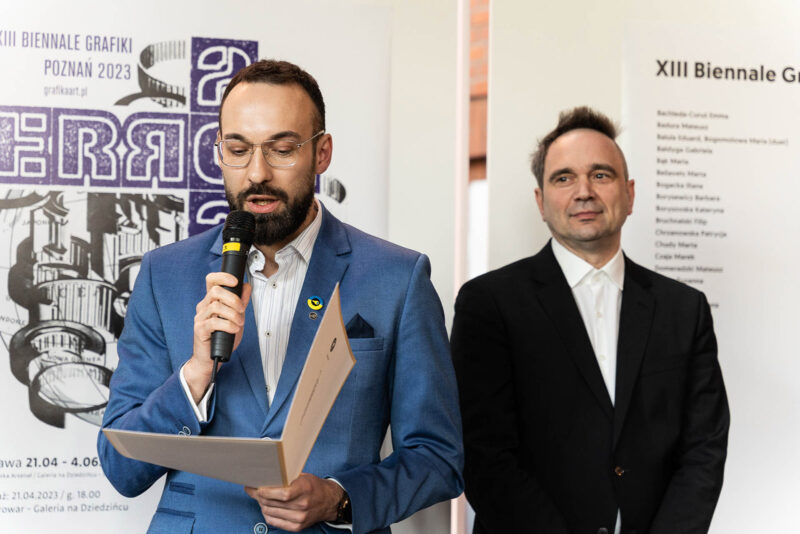
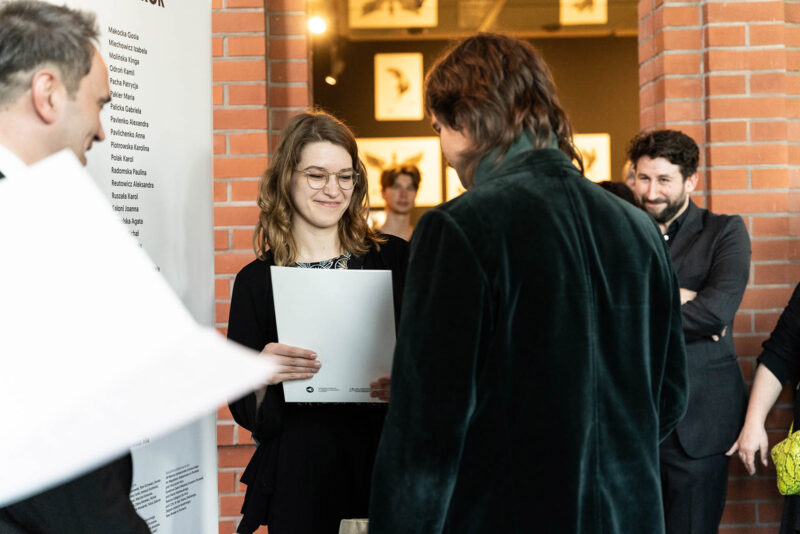
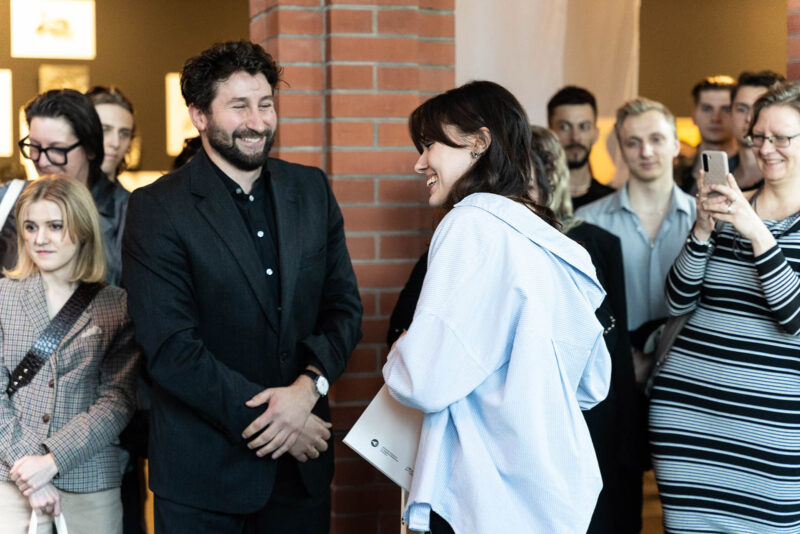
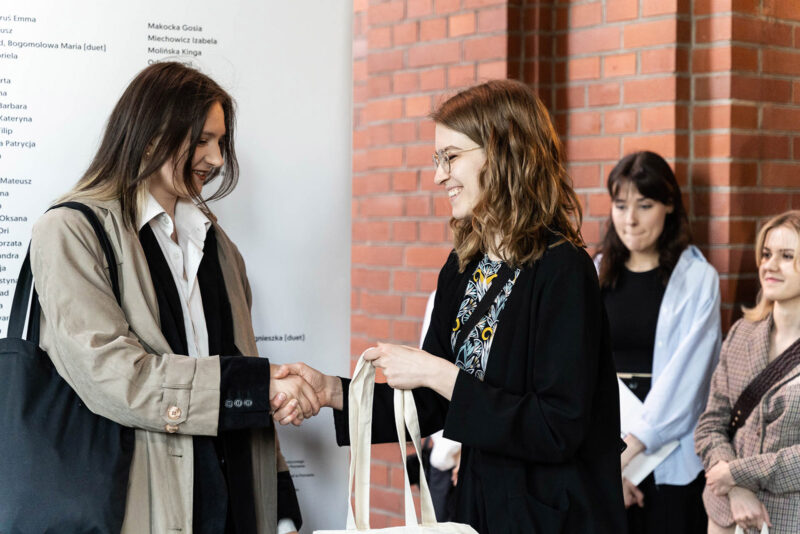
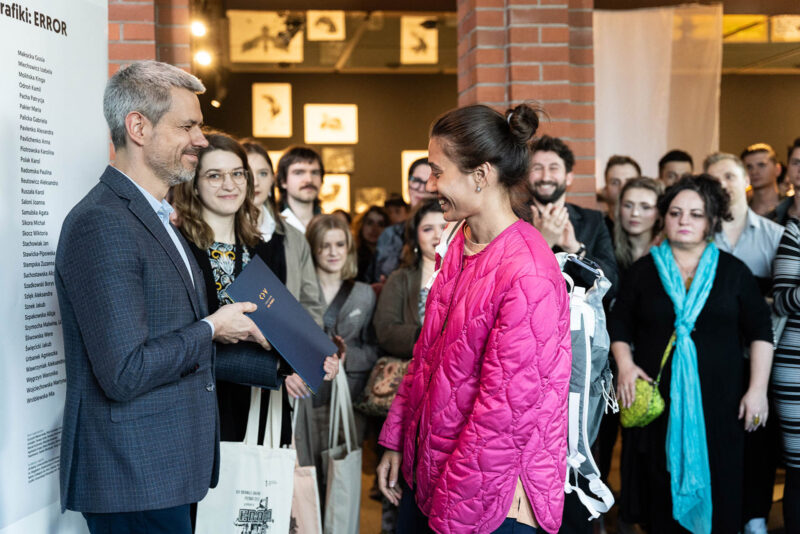
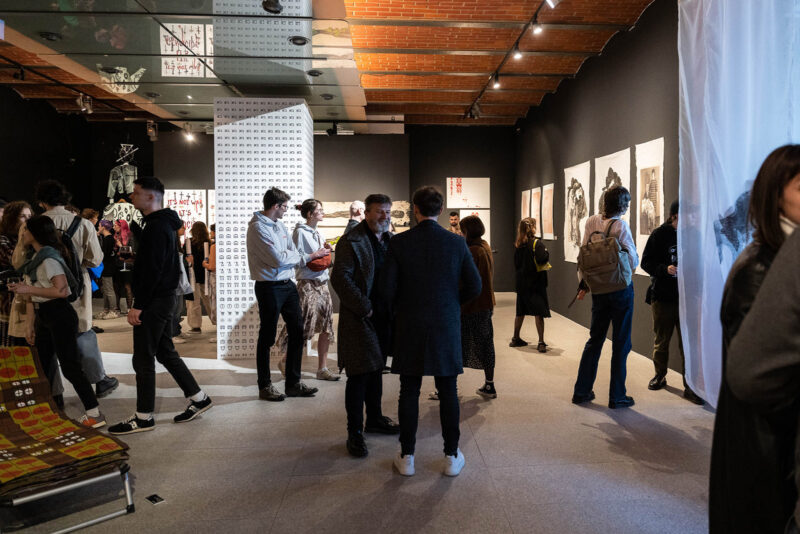
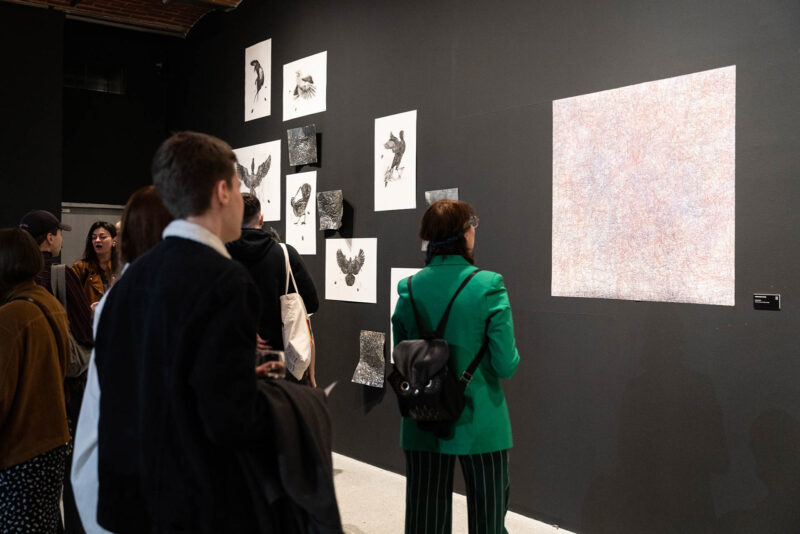

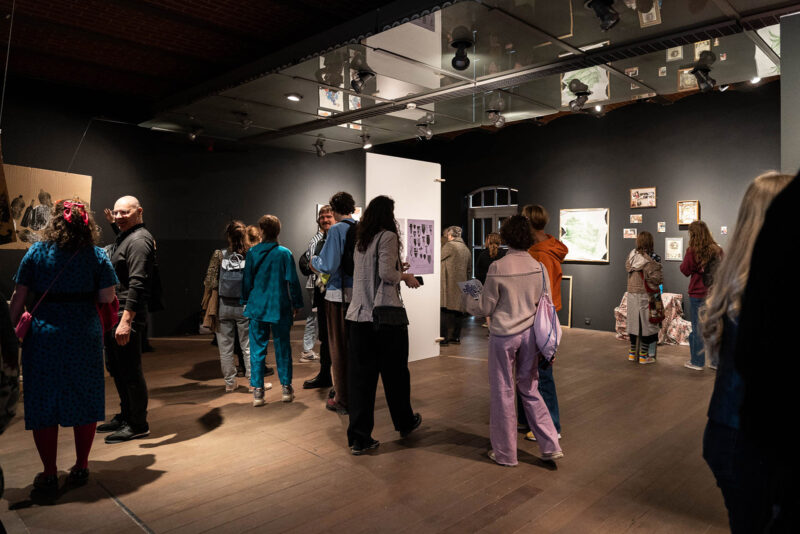
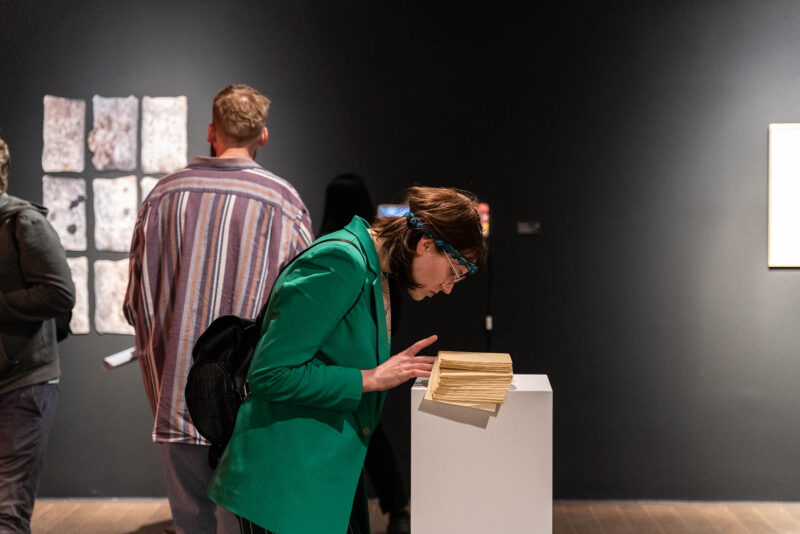
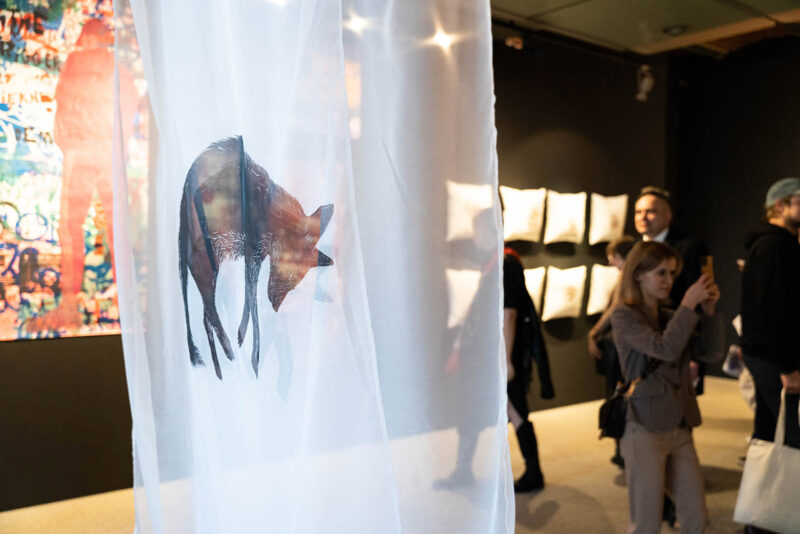
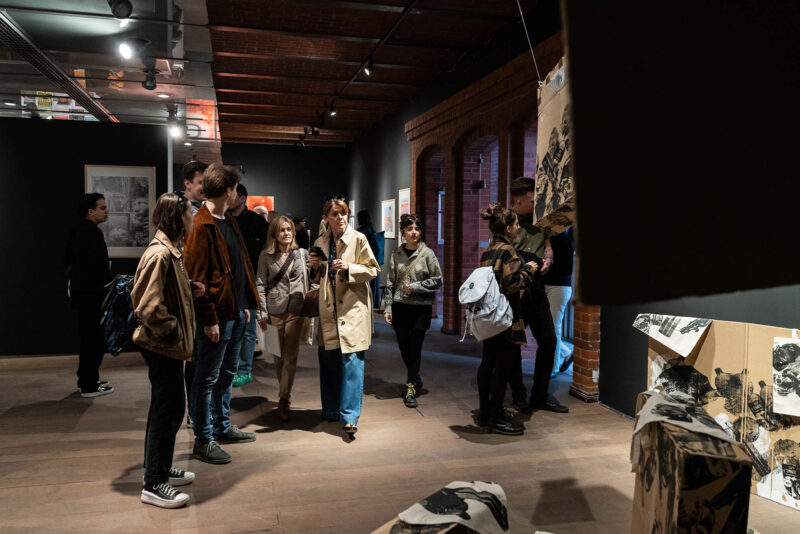
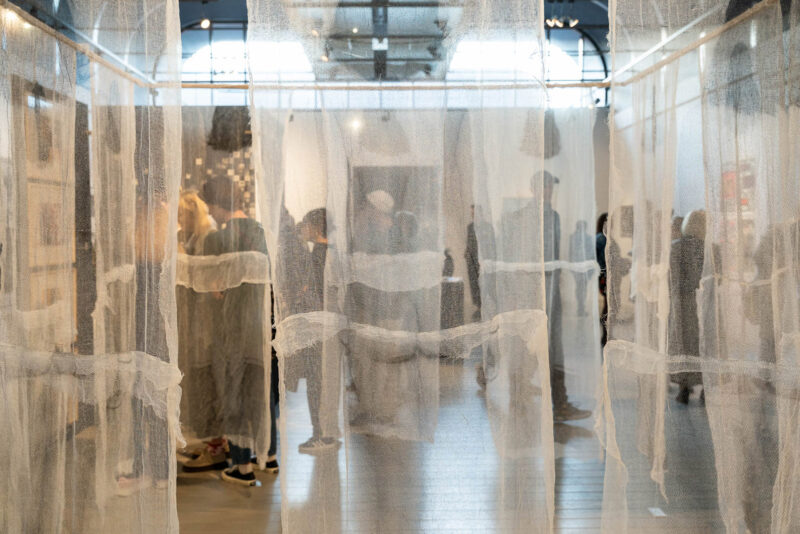
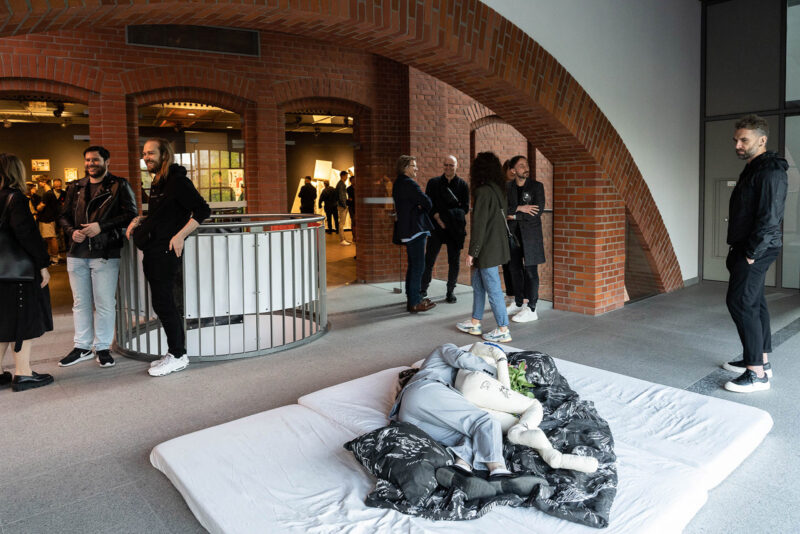
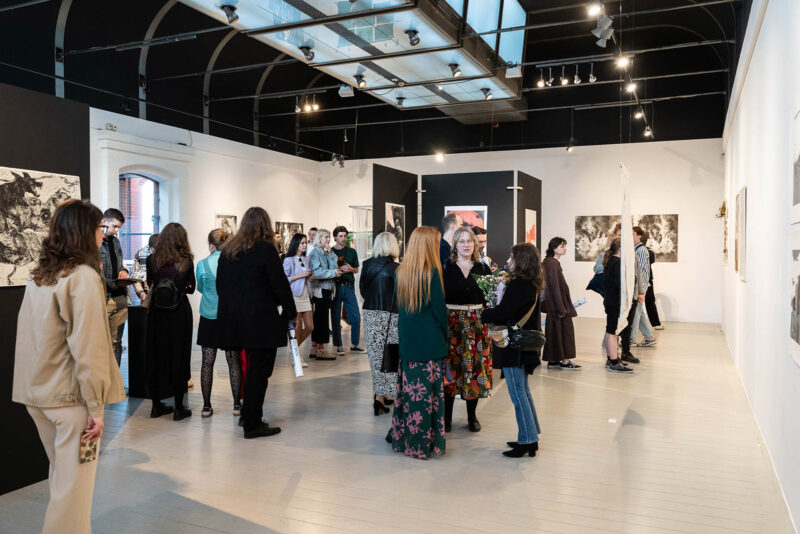
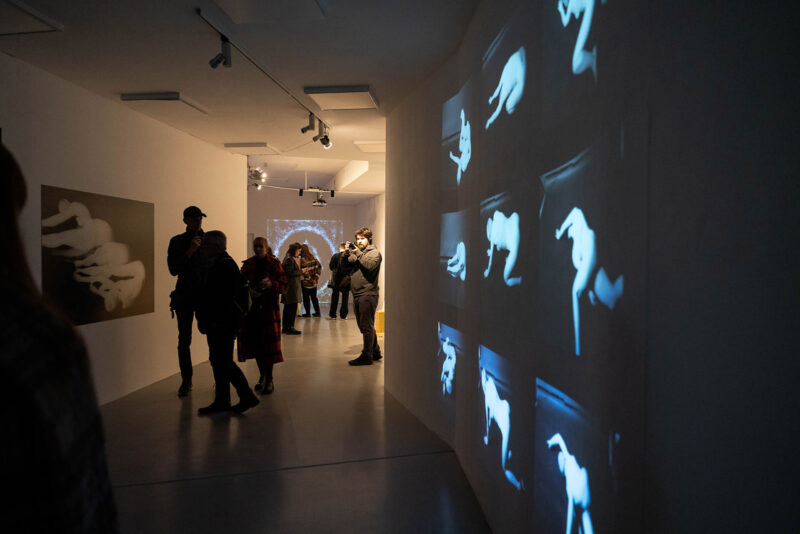
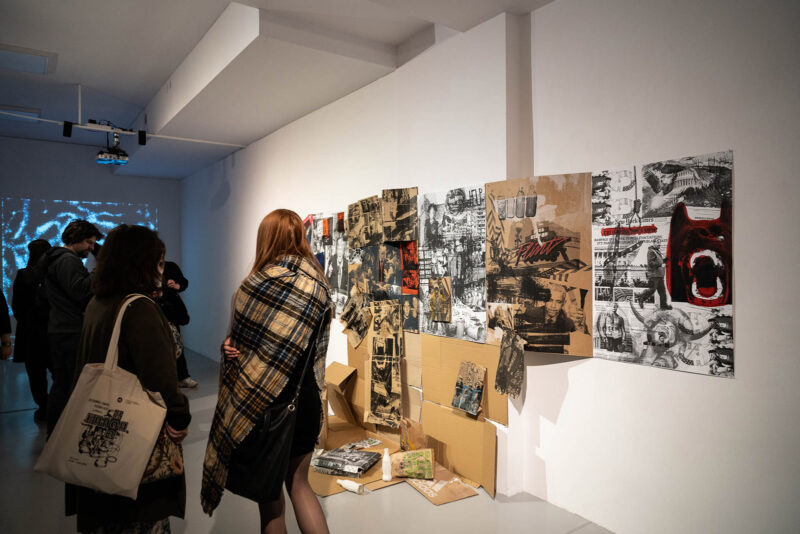
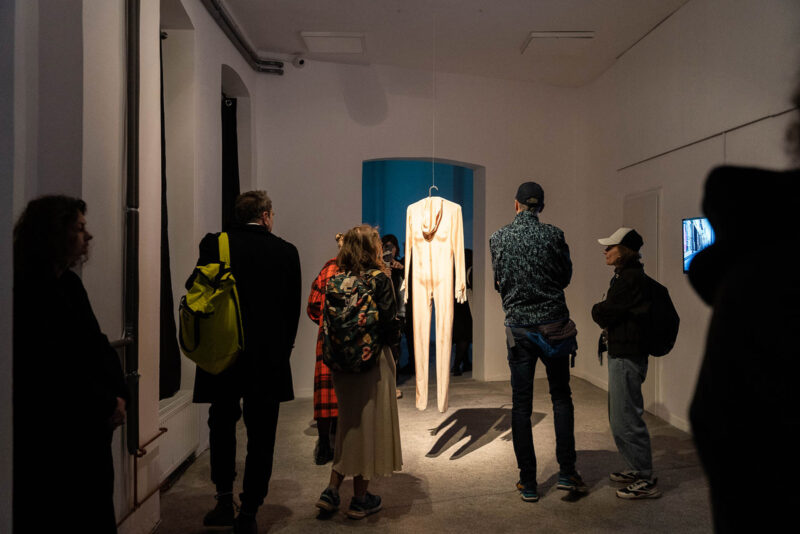
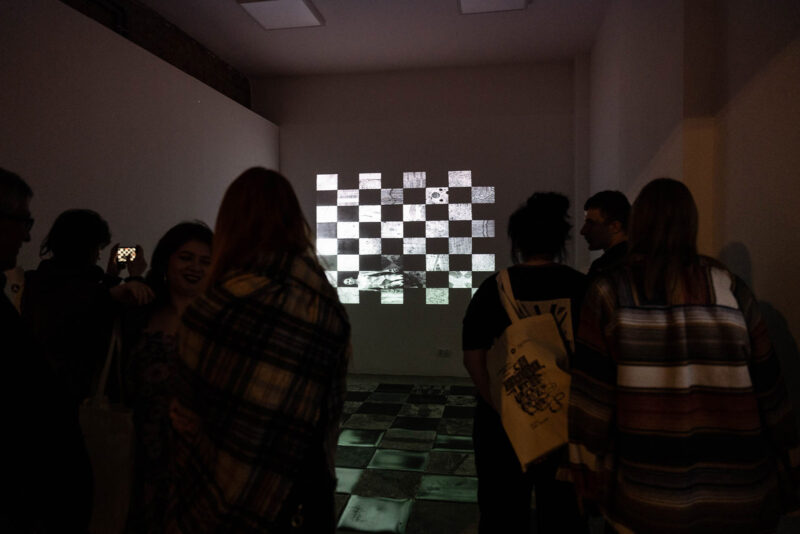
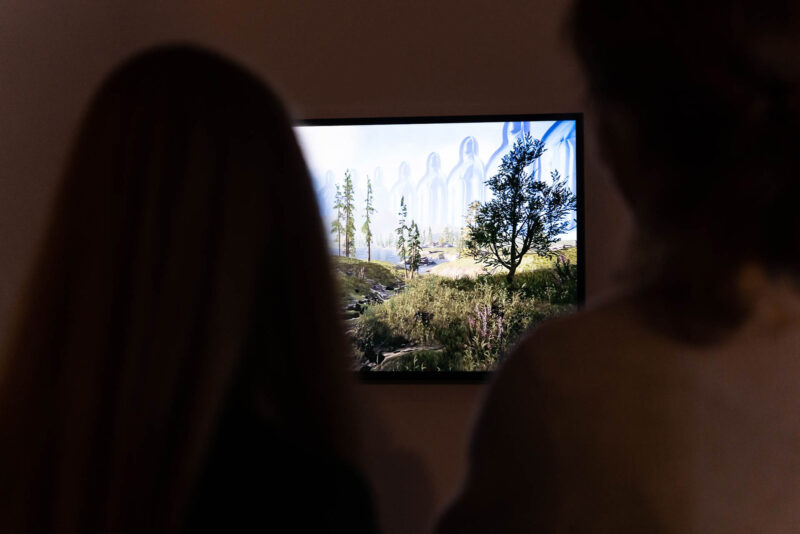
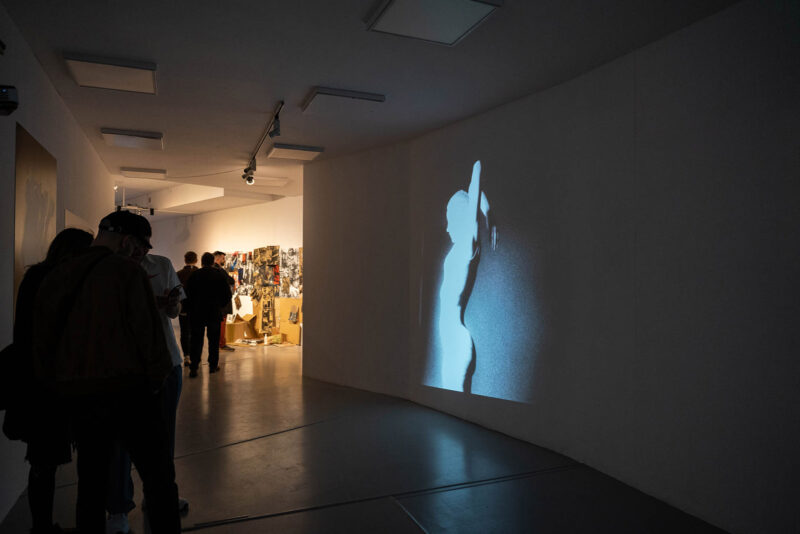
Programme
Lecture: Audioautografia
dr. hab. Tomasz Misiak, prof. UAP
ATRIUM UAP, ul. 23 Lutego 20
21.04.2023, 13.00
Exhibition: Gotong Royong
Curators’LAB, ul. Nowowiejskiego 12
Opening: 25.04.2023, 18.00
25.04-10.05.2023
Cooperation: Universitas Pendidikan Indonesia
Curator: Nala Nandana
Exhibition: Projekt Ну, погоди!, Nu, pogodi!
Gilotyna, Łąka Kany, Szczecin
Opening: 27.04.2023, 17:00
27.04-31.05.2023
Curators: Maksymilian Skorwider, Witold Modrzejewski, Dawid Czajkowski
Jury:
Lidia Głuchowska
Wojciech Kozłowski
Witold Modrzejewski
Dorota Monkiewicz
Błażej Ostoja Lniski
Mariya Plyatsko
Marta Anna Raczek-Karcz
Piotr Rypson
Waldemar Tatarczuk
Marek Wasilewski
Organizers:
Uniwersytet Artystyczny im. Magdaleny Abakanowicz w Poznaniu
Department of Graphic Arts, Faculty of Graphic Arts and Visual Communication
Dean of WGiKW Witold Modrzejewski
Co-organizers:
Galeria Miejska Arsenał w Poznaniu
Stary Browar
Honorary patronage:
Ministerstwo Kultury i Dziedzictwa Narodowego
Partners:
Fundacja Nowa UAP
Miasto Poznań
Curator:
Maciej Kurak
Coordinator:
Maja Michalska
Arrangement:
Rafał Górczyński
Biennial Office:
Krzysztof Balcerowiak, Piotr Grzywacz, Dorota Jonkajtis, Tomasz Jurek, Ireneusz Kozłowicz, Maciej Kozłowski, Matylda Konarska, Agnieszka Krupa, Olena Petrenko, Michał Tatarkiewicz, Radek Włodarski, Yuliya Zalozna
Prize founders:
JM Rektor Uniwersytetu Artystycznego, im. Magdaleny Abakanowicz w Poznaniu, Rektor Collegium Da Vinci, Dziekan Wydziału Grafiki i Komunikacji Wizualnej UAP, NN6T
[EN] The Biennale of Graphic Arts, established in 1999, is a cyclical review/competition presenting the works of artists of the young generation, working in the field of graphic arts. Since 2019, the formula of the competition has changed by specifying thematic areas that emphasise alternative values entering into a dialogue with contemporary culture and everyday life. The new formula of the biennale has been adapted to changes in contemporary art related to post-art activities (1: 1 art, ‘utilitarian’ art, material realism) and adapted to transformations conditioned by the role of graphic statements in the context of social activities (activist movements). The theme of the 13th Graphic Biennale, which will take place in spring 2023 in Poznań, is ‘Error’ – an issue which, in relation to art, criticises the existing reality as defective and imperfect, proposing instead improvements and transformations within culture and society. The competition is addressed not only to students of art schools, but also to artists from Poland and Ukraine who are under 35 years of age. In the first stage, preview files of the authors’ graphic works along with short descriptions of the ideas and techniques applied should be sent by 15 February 2023. Works qualified by the jury for the second stage should be sent to the address indicated on the website (grafikaart.pl). The projects nominated for the award will be presented at the post-competition exhibition organised at the Arsenał Municipal Gallery in Poznań and published in a catalogue accompanying the exhibition.
[UA] Бієнале Графіки, заснована у 1999 році, є циклічним оглядом/конкурсом, що представляє творчість молодого покоління, що працює у сфері художньої графіки. З 2019 року формула конкурсу змінилася, уточнюючи тематичні напрямки, які акцентують увагу на альтернативних цінностях, вступаючи в діалог із сучасною культурою та повсякденним життям. Нова формула Бієнале була адаптована до змін у сучасному мистецтві, пов’язаних із постхудожньою діяльністю (мистецтво 1:1, „утилітарне” мистецтво, матеріальний реалізм) та адаптована до трансформацій, зумовлених роллю графічних висловів у контексті громадської діяльності (активістські рухи). Темою XIII Бієнале Графіки, що відбудеться навесні 2023 року в Познані, є „Error” – проблема, яка стосовно мистецтва критикує існуючу реальність як дефектну та недосконалу, пропонуючи замість цього покращення та трансформації в культурі та суспільстві. Конкурс адресований не лише студентам мистецьких шкіл, а й художникам з Польщі та України віком до 35 років. На першому етапі файли – нарис графічних робіт автора – разом із коротким описом ідеї та техніки виконання необхідно надіслати до 15 лютого 2023 року. Роботи, кваліфіковані журі до другого етапу, слід надіслати за адресою, вказаною на сайті (graphicart.pl). Проекти, номіновані на премію, будуть представлені після конкурсу на виставці, організованій у Міській Галереї Арсенал у Познані та опублікованій у каталозі, що супроводжує виставку.
Error
An error occurs when an individual is not adapted to the social environment[1] or when the latter is subject to degradation. As a consequence, it is associated with the processuality which enforces activity aimed at restoring the state from before the individual’s crisis functioning or at searching for solutions to improve the living conditions. A complete return to the events of the past is ultimately impossible as facts are idealised, which makes us realise that there is no transplantation in social being[2]. Any attempt to restore history does not take into account the multi-element nature of complex situations in a changing historical system. Referring to the past without considering the present and the future leads to false ideas that serve, for example, to shape social myths which are used as ideologies to manipulate society.
For example, the myths of the Great Empire, the Great Reich, a country of wealth stretching from sea to sea, or a country with a sphere of influence from Asia to the Elbe are based on erroneous, often fictitious assumptions aimed at creating a better future inspired by a modified past. The truth is quite different. The empire offers low socio-economic prosperity, while feudal exploitation in the country and the dictatorship of power in the authoritarian state do not bring common wealth. These myths serve, above all, extreme particularism. Deideologisation protects society against dangerous forms of thinking that destroy the existing order. At the same time, it is used to maintain an economic system based on social inequality. Individual people – as well as the social forms of their interference – should act ‘purely rationally’; then there will be no more genuine conflicts at all, nor will there be any free field of ideology; purely ‘objective’ differences succumb to purely ‘objective’ regulation through rational agreements, compromises, and so on. Deideologisation therefore means unlimited manipulability and manipulation of the entire human life. Therefore, this attitude towards reality essentially recognises only the existence of particular people.[3] This form of being is a hidden way of ideologising using the concept of freedom to emphasise the importance of particular values related to property.
Manipulation is a common form of influence that uses positive and rational social values for personal gain. A strategy that disguises intent, usually based on famous scientific, philosophical and artistic ideas, makes counteraction impossible. An attempt to reveal its hidden functioning mechanisms leads to the emergence of opportunistic attitudes. It is believed that reality is exactly as it is represented by universal manipulation. Therefore, if you are a rational person, you cannot oppose – in the form of a sharp negation – this universality without also speaking internally for something that is wrong.[4]
An error is deliberately used for manipulation and enables the introduction of changes or the maintenance of the existing situation. Adulteration treated as hidden facts can be appropriately used by decision-makers at the top of the economic ladder who are interested in maintaining the status quo of social organisation. These issues are discussed by Joseph E. Stiglitz, the American Nobel Prize winner in economics, who questions the theory of trickle-down economics. He draws attention to the specificity of economic investments in a globalised world (tax free zones, absolute additional values, investment mobility).[5] He reveals the systemic consequences of increasing social inequality. Actions supporting the growth of social polarisation are destructive as ‘the gains to winners are less than the losses to the losers’[6]. Neoliberal policies, particularly in economically less developed countries, which maintain disproportions in the economic status of societies, lead to the bending of facts. Controlling the less affluent part of society is possible with the use of simple, common solutions, which are often based on false information.
The resulting ideologies usually do not solve the problem, but trigger primitive social responses giving short-term benefits. They arise unconsciously in a complex system (the society in itself), frequently causing the emergence of extreme nationalist and imperialist attitudes creating social conflicts. Focusing solely on particularism ignores social benefits, such as: ‘steady jobs and decent incomes for “the most numerous and the poorest class,” abundance and welfare for all, new modes of community …’[7]
The detection of an error can be a turning point in action. It limits life stagnation and also makes it possible to take action to improve the socio-economic situation. Marshall Berman, an American philosopher, points out that ‘[i]n this world, stability can only mean entropy, slow death, while our sense of progress and growth is our only way of knowing for sure that we are alive. To say that our society is falling apart is only to say that it is alive and well.’[8] Referring to art, creative activities that define the hitherto existing reality as defective and imperfect introduce improvements and transform the human environment. The positive impact of creativity on social development is possible after overcoming the obstacles resulting from the activity of the market, which can absorb even the most radical opposing attitudes.
This system requires constant revolutionizing, disturbance, agitation; it needs to be perpetually pushed and pressed in order to maintain its elasticity and resilience, to appropriate and assimilate new energies, to drive itself to new heights of activity and growth. This means, however, that men and movements that proclaim their enmity to capitalism may be just the sort stimulants capitalism needs.[9]
Any attempt to stop changes or merely simulate reforms is an ultimate fixation on the present time subjected to consumer culture. In this situation, artistic activities play a significant role, giving the opportunity to participate in the process of society’s development. At the same time ‘it is not about (actual) activated teleological processes, but only about trying to exert an appropriate teleological influence on causal processes’[10].
Curator: Maciej Kurak
Error[1]
Помилка створюється невідповідністю соціальному середовищі[2] або його деградацією. Як наслідок, це пов’язано з процесуальністю примусової діяльності, спрямованої на відновлення стану з докризового функціонування особистості або пошук рішень для покращення умов життя. Повне повернення до подій минулого в кінцевому підсумку неможливе, оскільки факти ідеалізуються, що змушує нас усвідомити, що „трансплантації в суспільному бутті немає”[3]. Будь-які спроби відновлення історії не враховують багатоелементного характеру складних ситуацій у мінливій історичній системі. Посилання на минуле без урахування сьогодення та майбутнього призводить до хибних ідей, які служать, наприклад, для формування соціальних міфів, які використовуються як ідеології для маніпулювання суспільством.
Міфи, наприклад, про Велику імперію, Великий рейх або про країну багатства, що простягається від моря до моря, або про країну зі сферою впливу від Азії до Ельби, засновані на помилкових, часто фіктивних припущеннях, спрямованих на створення краще майбутнє, натхненне зміненим минулим. Правда, однак, зовсім інша. За часів імперії спостерігається низький рівень соціально-економічного процвітання, а феодальна експлуатація в країні, а також диктатура влади в авторитарній державі не приносять загального багатства. Ці міфи служать, перш за все, крайньому партикуляризму. Деідеологізація – це захист суспільства від небезпечних форм мислення, які руйнують існуючий порядок. Водночас він використовується для підтримки економічної системи, заснованої на соціальній нерівності. „Окремі люди винні – а також соціальні форми їхнього втручання – повинні діяти <чисто раціонально>; тоді взагалі не буде справжніх конфліктів, ані вільного поля ідеології; суто <об’єктивні> відмінності піддаються чисто <об’єктивному> регулюванню через раціональні домовленості, компроміси тощо. Отже, деідеологізація означає необмежене маніпулювання та маніпулювання всім людським життям. Тому таке ставлення до дійсності визнає по суті лише існування окремих людей”[4]. Ця форма буття є прихованим способом ідеологізації з використанням концепції свободи, щоб підкреслити важливість окремих цінностей, пов’язаних із власністю.
Маніпуляція є поширеною формою впливу, яка використовує позитивні та раціональні соціальні цінності для особистої вигоди. Стратегія, яка маскує намір, зазвичай заснована на відомих наукових, філософських і художніх ідеях, унеможливлює протидію. Спроба розкрити його приховані механізми функціонування призводить до появи опортуністичних установок. „(…) вважається, що реальність є саме такою, якою її представляють універсальні маніпуляції, і тому, якщо ти розумна людина, ти не можеш протиставити – у формі різкого заперечення – цій універсальності, не висловлюючись також внутрішньо за те, що не так…”.[5]
Навмисна помилка використовується для маніпуляції і дає змогу вносити зміни або підтримувати існуючу ситуацію. Фальсифікація, яка розглядається як приховані факти, може бути належним чином використана особами, які приймають рішення на вершині економічної драбини, які зацікавлені у збереженні статус-кво соціальної організації. Ці питання у своїх працях обговорює американський лауреат Нобелівської премії з економіки Джозеф Е. Стігліц, який підриває між іншим економічну теорію trickle-down economics. Привертає увагу до специфіки економічних інвестицій у глобалізованому світі (зони, вільні від оподаткування, абсолютні додаткові цінності, мобільність інвестицій)[6]. Він розкриває наслідки системи зростання соціальної нерівності.
Дії, спрямовані на сприяння зростанню соціальної поляризації, є деструктивними, „оскільки виграш від цього зазвичай менший, ніж втрати тих, хто завдає ці вигоди”[7]. Неоліберальна політика, особливо в економічно менш розвинених країнах, які зберігають диспропорції в економічному становищі суспільства, призводить до перекручування фактів. Контролювати менш заможну частину суспільства можна за допомогою простих, поширених рішень, які часто базуються на неправдивій інформації. Отримані в результаті ідеології зазвичай не вирішують проблеми, але вони викликають примітивні соціальні реакції з короткостроковими вигодами. Вони виникають без усвідомлення в складній системі (самому суспільстві), що є частою причиною виникнення крайніх націоналістичних та імперіалістичних настроїв, що породжують соціальні конфлікти. Зосередження уваги виключно на партикуляризмі ігнорує соціальні переваги, такі як: „постійна зайнятість і гідна заробітна плата для <найчисленніших і найбідніших класів>, загальний добробут і процвітання, нові форми громадського життя… „[8].
Виявлення помилки може стати поворотним моментом у дії. Це обмежує життєвий застій, а також дозволяє здійснювати заходи, спрямовані на покращення соціально-економічного становища. Маршал Берман, американський філософ, зазначає, що „у цьому світі стабілізація може означати лише ентропію, повільну смерть, тоді як наше відчуття прогресу та розвитку – це єдине, що ми дійсно знаємо, що ми живемо. Сказати, що наше суспільство розпадається, означає сказати, що воно живе і здорове”[9]. Звертаючись до мистецтва, творча діяльність визначає досі існуючу реальність як неповноцінну та недосконалу, вносить удосконалення та перетворює оточення людини. Позитивний вплив творчості на суспільний розвиток можливий після подолання перешкод, що виникають у результаті діяльності ринку, який може поглинути навіть найрадикальніші протилежні установки. „Ця система вимагає постійної революції, тривоги та хвилювання; щоб зберегти пружність і еластичність, вона повинна піддаватися постійному тиску і напрузі на все більших рівнях. Це, однак, означає, що окремі особи та рухи, які проголошують ворожість капіталізму, можуть виявитися лише стимулом, якого капіталізм потребує найбільше”[10]. Будь-які спроби зупинити зміни або просто імітувати реформи є в кінцевому підсумку зацикленістю на сьогоденні, підпорядкованому споживчій культурі. У такій ситуації значну роль відіграє художня діяльність, яка дає можливість брати участь у процесі розвитку суспільства „йдеться не про (фактично) активізовані телеологічні процеси, а лише про спробу здійснити відповідний телеологічний вплив на причинно-наслідкові процеси”[11].
Куратор: Maciej Kurak
[1] It is worth noting here that it is not about a simple conflict between society and an individual, which ultimately involves shaping individuality independently of society.
[2] Cf. György Lukács, Toward the Ontology of Social Being, Vol. 2, London: Merlin Press, 1978, p. 1084.
[3] Cf. Ibid., p. 1120.
[4] Cf. Ibid., p. 1151.
[5] Joseph Stiglitz, The Price of Inequality: How Today’s Divided Society Endangers Our Future, http://resistir.info/livros/stiglitz_the_price_of_inequality.pdf (accessed on 5 May 2022; online version; no pagination).
[6] Ibid., p. 33.
[7] Marshall Berman, All that is Solid Melts Into Air: The Experience of Modernity, London and New York:Verso, 1983, p. 73.
[8] Ibid., p. 95.
[9] Ibid., p. 118.
[10] Cf. György Lukács, op. cit., Vol. 3.
[1] Всі цитати у тексті перекладені на українську мову перекладачем.
[2] Тут варто зазначити, що між суспільством і особистістю існує не простий конфлікт, який в кінцевому підсумку тягне за собою прийняття незалежності формування особистості від суспільства.
[3] György Lukács, Wprowadzenie do ontologii bytu społecznego, t. 2, Państwowe Wydawnictwo Naukowe, Warszawa 1984, s. 1084.
[4] Там само, с. 1120.
[5] Там само, с. 1151.
[6] Joseph Stiglitz, Cena nierówności. W jaki sposób dzisiejsze podziały społeczne zagrażają naszej przyszłości?, Wydawnictwo Krytyki Politycznej, Warszawa 2015.
[7] Там само, c. 33.
[8] Marshall Berman, „Wszystko, co stałe, rozpływa się w powietrzu”. Rzecz o doświadczeniu nowoczesności, UNIVERSITAS, Kraków 2006, s. 93.
[9] Там само, c. 124.
[10] Там само, c. 153.
[11] György Lukács, Wprowadzenie do ontologii bytu społecznego, t. 3, Państwowe Wydawnictwo Naukowe, Warszawa 1985, s. 467.